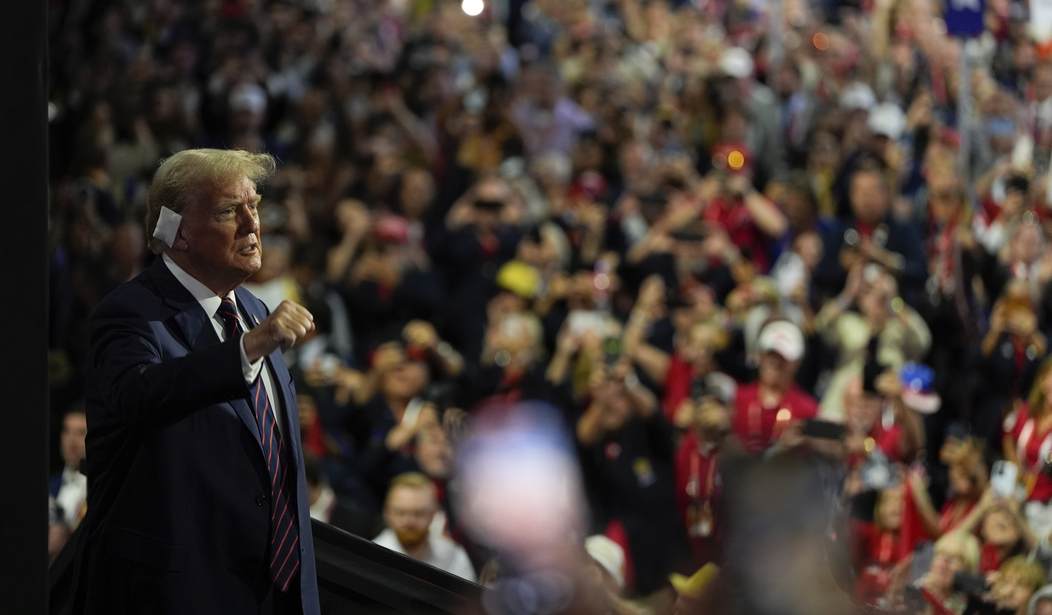Donald Trump and Grover Cleveland are uniquely positioned in American history. Grover Cleveland is the only person to ever win non-consecutive presidential terms. Donald Trump, who has shown amazing courage under fire and delivered a stirring convention speech, is about to do the same.
Of Humble Origins
Born in 1837, Cleveland served as both the 22nd and 24th U.S. president. As with many future presidents, Cleveland was employed in a variety of ways on his path to the highest office. His father died at an early age, so to help support the family, Cleveland dropped out of school.
For a time, he worked in New York, teaching at a school for the blind. Then, he served as a law clerk for a firm in Buffalo. At the age of 22, he took the state bar examination and passed it. In 1862, at the age of 25, he established his own law firm.
In 1871, he became the sheriff of Erie County, NY, serving a two-year term. At this time, he presided over the death sentences of three convicted murderers. When his term ended, he returned to his law practice. Seven years later, he was persuaded by Democrats in Buffalo to run for mayor. He won and began instituting reforms in what was regarded as a corrupt city government.
A Growing Reputation
Cleveland's reputation grew as a strong opponent of political machines. Urged to run for governor, he did so and won, taking office in January 1883 at the age of 45.
Cleveland was a staunch defender of minimal government spending and routinely vetoed bills presented to him by the New York legislature. This quickly made him popular with rank-and-file voters but an outcast within his own party.
Forming solid associations with up-and-coming politicians, such as Theodore Roosevelt, Cleveland was now on a historic path. In 1884, he won the Democratic primary and became their candidate. However, the presidential race was no picnic. He was lambasted for financial scandals and the paternity case ten years earlier, after which he provided economic support to a woman for their out-of-wedlock child.
Recommended
Despite heavy negative press and the support of some Republicans, Cleveland was victorious. He became the 22nd U.S. president and the first Democrat elected following the Civil War.
Unprecedented in Several Ways
Unlike all previous presidents, Cleveland was a bachelor. After 15 months in office, at age 48, he married a 21-year-old woman in the only marriage ceremony actually held in the White House. The Clevelands had five children.
Historians regard Cleveland's tenure as mixed. He won the popular vote in 1888 but was defeated by Republican Benjamin Harrison. As 1892 approached, Cleveland was again the front-runner. President Harrison's wife was dying of tuberculosis, so Harrison chose not to campaign, and Cleveland acted in kind. He was victorious, in part because the turncoat voters of 1888 returned to him.
His second term quickly appeared doomed due to a severe economic downturn dubbed the Panic of 1893. With unemployment approaching 20%, only the Klondike gold strike led to signs of recovery, starting in 1896 as Cleveland's second term was ending. As such, historians have admonished Cleveland for having no national vision and for being unimaginative.
Despite the woes and with no term limits existing for presidents at that time, Democrats sought Cleveland for a third term. However, Cleveland balked, and William Jennings Bryan won the Democratic nomination, only to lose to Republican William McKinley of Ohio.
History Sort of Repeats Itself
Donald Trump, whose upbringing and origins have been explored to ad infinitum, seems likely to duplicate Cleveland's return to the White House. Many people regard his re-election as mandatory for the restoration of our nation, while many on the Left regard Trump as "Hitler" or the devil personified, the man who will end democracy, regardless of how ridiculous these notions happen to be.
Engaging in lawfare and other tactics unprecedented in our history, the Biden administration is a real danger to Democracy. The recently attempted assassination, still of unknown origins notwithstanding, if the Left succeeds in preventing Trump from reclaiming the presidency, our country will decline rapidly.
So, within less than 16 weeks of the 2024 presidential election, we must ensure that Donald Trump becomes America's 45th and 47th president. We need this historical phenomenon to be repeated.
May we dispense with the installed 46th president as soon as the law allows!
























Join the conversation as a VIP Member